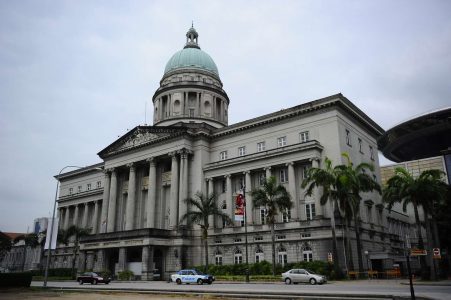
Singaporean man charged with providing money to support Islamic State propaganda efforts
A Singaporean man was charged on Monday (April 15) with providing money to support the Islamic State in Iraq and Syria’s (ISIS’) propaganda efforts for terrorist purposes, said the Ministry of Home Affairs (MHA) in a statement.
Investigations had found that Imran Kassim, 35, a former managing director of a logistics company, had provided $450 to an individual in Turkey on Oct 31, 2014, for the publication of ISIS propaganda.
“This act of providing money in support of terrorist purposes is a serious offence, regardless of the amount, under the Terrorism (Suppression of Financing) Act,” said MHA.
He had been detained under the Internal Security Act (ISA) since August 2017, and had been issued with a detention order for intending to undertake armed violence overseas. .
MHA said that if Imran is convicted, the detention order against him will be cancelled, and he will serve the prison term imposed by the court.
He will be held separately to prevent him from spreading his radical ideas to other inmates, and will continue to undergo rehabilitation while serving his prison sentence, it added.
“An assessment will be made at the end of his sentence whether he has been successfully rehabilitated or remains a threat to society. If he remains a threat, he may be detained further under the ISA,” MHA said.
Imran had tried to make his way to Syria at least twice and was so deeply radicalised that he was prepared to attack Singapore Armed Forces troops deployed in the global coalition against ISIS, or hold them as hostages to demand ransom from the Government, MHA had said in 2017 after his arrest.
He had also harboured intentions of joining pro-ISIS militants in Marawi who were battling Philippine forces.
Anyone convicted of the offence of providing property and services for terrorist purposes may face prison of not more than 10 years and a fine not exceeding $500,000.
Source: Straits Times





